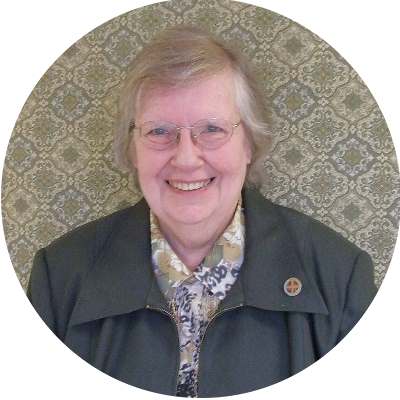
Current ministry and interest: I’ve always been someone with eclectic areas of interest, and I have usually found ways to use these in ministry. Photography, human communication, TV/ film, sciences, ecology, history, theology, & contemporary cultural forces are all areas of interest. I have been able to incorporate these during my years as a high school teacher, those as communication director for the Diocese of Covington, and in my years as a freelance communication consultant. I still tap into them one way or another, for example, in the periodic columns I write for
 our diocesan paper. Another major thread that weaves through most of my life, especially in ministry, is music. I’ve been a professional church musician for 53 years (I just turned 65.) because I got my first regular paying job as an assistant organist the summer after the 6th grade. I’m still “organing” full time! I have also been a guitarist and I am a composer of hymnody.
our diocesan paper. Another major thread that weaves through most of my life, especially in ministry, is music. I’ve been a professional church musician for 53 years (I just turned 65.) because I got my first regular paying job as an assistant organist the summer after the 6th grade. I’m still “organing” full time! I have also been a guitarist and I am a composer of hymnody.
Favorite quotation: I don’t really have a favorite quote; different passages impact me at different times of my life. In the Rule, however, I am always impressed with Benedict’s understanding of human nature. He cares about the individual but at the same time, encourages the formation of community. This valuing of opposites is just one of many sets of paradoxes found in the Rule. I am convinced that this creates a flexibility, a trait I highly value, that is one primary reason Benedict’s form of monasticism is still vibrantly alive after almost 1500 years.
Monastic life here at St. Walburg: We are a richly blessed community. We are all seekers who find God both individually and collectively, especially through our liturgies of Hours and Eucharist and our wonderful surroundings that promote contemplation. We try to understand each other’s needs and gifts, and be of support to each other and their families when needs arise.
What Benedictine women have to offer: I think we have a wholistic view of life. We are not people who isolate ourselves from society, but try to find ways to improve the lot of the world. Some of us do this by going out to the highways and byways to be of service; others find other ways to reach out through prayer, study and writing, through telephone & internet contacts and other creative ways.
All of us operate out of a deep sense of hospitality that is part of Benedict’s monastic way of life. I believe that if more people in our society had the sense of welcoming that Benedict expects of his followers, there would be fewer people quick to judge or eager to raise one culture above another. Benedict had a sense of equality that was far beyond his time, and we who follow in his path try to emulate that by living lives filled with mutual respect and concern.